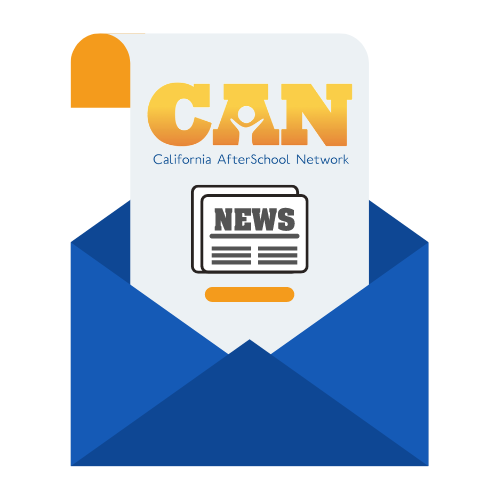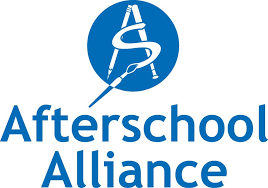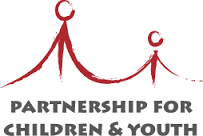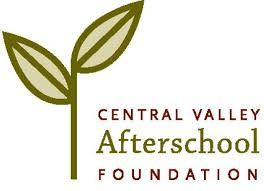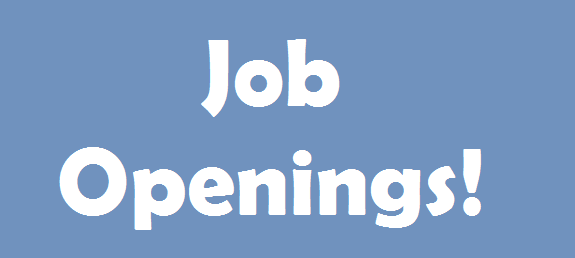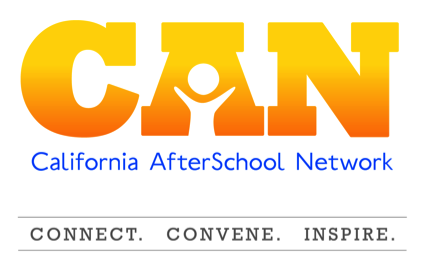CAN Newsletter – August 9, 2016
Related Content
State Expanded Learning Policy Update
Despite the Assembly proposing a $73 million increase and the Senate proposing a Cost of Living Adjustment (COLA) for the After School Education and Safety (ASES) Program, California’s final 2016-17 budget did not include either proposal. To address this issue, Assemblymember Jim Cooper (D-Elk Grove) has proposed AB 1426 as a stop-gap measure to provide struggling programs with some relief. The bill would increase the ASES daily rate to $8.50 (beginning July 1, 2017) within existing funding, and provide more flexibility in program operations. AB 1426 will continue through the legislative process after Summer Recess. An additional bill AB 2615 is being advanced by Assemblymember Jim Wood (D-Healdsburg) to make several technical changes to ASES, 21st Century Community Learning Centers and After School Safety and Enrichment for Teens (ASSETs) programs. Learn more about state policy and how you can take action by visiting CA3 and subscribing to their newsletter, and accessing information from the Save Afterschool Campaign.
Funding for Afterschool Maintained in House Education Spending Bill
The federal budget appropriations process is currently underway. Both the House and Senate have crafted spending bills that will have implications for 21st Century Community Learning Centers (CCLC). The House budget proposes to maintain current 21st CCLC spending levels and preserves the child development block grant at $2.8 billion. The House bill would also allocate $10 million for Full Service Community Schools (FSCS) and fund the new Student Support and Academic Achievement State Grant program in Title IV Part A of the Every Student Succeeds Act (ESSA) at $1 billion, which would support grants to states and school districts to expand access to a well-rounded education (including afterschool STEM initiatives), improve school conditions, and improve the use of technology. The Senate budget bill proposes to cut 21st CCLC by $117 million. To learn more, click here.
Child Care and Development Fund State Plans Available
On November 19, 2014, President Obama signed into the law the Child Care and Development Block Grant (CCDBG) Act of 2014. The law reauthorizes the CCCDF and made advances by defining health and safety requirements for child care providers, outlining eligibility policies, and ensuring parents and the general public have transparent information about child care choices. Each state is required to submit a state CCDF plan for implementation of the CCDBG. The office of Child Care recently released PDF copies of all approved fiscal year 2016-2018 CCDF plans. California’s CCDDF plan was created by the California Department of Education Early Education and Support Division. The plan outlines leadership of California’s state CCDBG plan, who was consulted in the development of California’s plan, and how funds are disbursed and tracked, financial assistance for families, and licensing. The plan also outlines public-private partnerships supporting the states plan including coordination with local Child Care Resource and Referral Agencies, family engagement strategies, and quality improvement systems, and much more. Access California’s CCDF plan.
USDA Issues Final Rules Support Healthy School Snacks and Wellness Policies
The Unites States Department of Agriculture (USDA) recently announced four updated regulations (final rules) to improve health in school environments. The four final rules pertain to snacks, local school wellness policies, community eligibility, and administrative review. Rules regarding snacks are intended to increase nutrition and access to fruits and vegetables.
Using Local Control to Expand Learning Opportunities
Jennifer Peck, Executive Director for the Partnership for Children and Youth, wrote a blog for the Huffington Post outlining the the risks to the nation’s largest expanded learning infrastructure due to increasing cost pressures and the benefits of local investment in expanded learning programs utilizing the Local Control Funding Formula (LCFF). In the blog, Peck writes, “California’s nationally-recognized after school system is at risk of crumbling without additional state funding in this year’s (state) budget. While the costs, demands, and expectations of California’s After School Education and Safety (ASES) programs have consistently increased, the funding has reminded stagnant for almost a decade.” The blog, co-written by Lillian Maldonado French, Superintendent, Mountain View Elementary School District outlines the benefit of LCFF investments in expanded learning programs. To read more, click here.
Bridging the Gap Between Expanded Learning Research and Practice: A Conversation with Researchers and Practitioners
The Central Valley Afterschool Foundation interviewed out-of-school time learning experts offering both the researcher and practitioner perspective on the challenge of understanding and communicating the findings of expanded learning on students and putting those findings into practice. Key content addressed by the researchers and practitioners outlines how small organizations access and utilize data for program improvement and sustainability. Read more of “Bridging the Gap Between Expanded Learning Research and Practice: A Conversation with Researchers and Practitioners.”
LIAS Blog: SEL and the Challenge of Context, Culture, and Focus
Dr. Shawn Ginwright, Associate Professor for College of Ethnic Studies at San Francisco State University, recently was a speaker the How Kids Learn Conference on the topic of how we view social emotional learning in our work with young people of color. Dr. Ginwright expands on his expertise in this LIAS blog: SEL and the Challenge of Context, Culture, and Focus. He discusses important topics such as youth understanding their own racial identity and experience, changing how we refer to the “achievement gap” and better labeling it the “opportunity gap,” and review the term “agency” (the ability to act and have a sense of control over one’s life) being a crucial developmental component that can be supported in expanded learning programs. Read more here.
Do You Have a Job Opening? Seeking a job?
The California AfterSchool Network is now connecting expanding learning programs and job seekers. Job openings can be for any level of an out-of-school time program or organization serving youth. Visit our website to post a current job opportunity or check out our job listings today.
Order Free CAN Resources!
Do you want access FREE CAN resources? If you would like copies of any of CAN’s great resources please fill out this form and CAN will mail copies directly to you.

